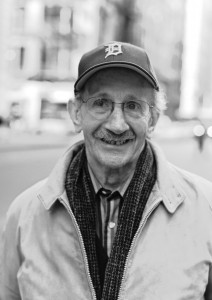
Says Burt in his talk, “Poetry helps me want to be alive.” I think for poems, the feelings are mutual. And the opposite is also true: Without a reader, a poem is nothing but an imprint, the residue of an idea one writer had once. Rather than a static item printed on a page, a poem is an event that occurs with each new reader and with each new reading. And though a poem doesn’t make things happen, it happens - every time someone reads it. Yet rationally we know that the death of Yeats had no bearing whatsoever on the weather conditions of the winter day - because poetry makes nothing happen.Įven so, Auden continues, poetry “survives / In the valley of its making” “it survives, / a way of happening, a mouth.” In other words, poetry may not live but it does survive it outlasts its makers and acts as a voice beyond death. In the first stanza from this elegy to the Irish giant of modernist poetry, he writes, “What instruments we have agree / The day of his death was a dark cold day.” Ever the wry lamenter, Auden evokes a common human feeling: that nature responds to our human joys and tragedies. The line, from his poem “ In Memory of W. As Auden is oft quoted as saying, “Poetry makes nothing happen.” Indeed, the act of reading a poem is often singularly sedentary, requiring the reader to concentrate fully in a giant arm chair, intently focused. Says Burt, “The patterns in poems show us not just what somebody thought or what someone did or what happened, but what it was like to be a person like that - to be so anxious, so lonely, so inquisitive, so goofy, so preposterous, so brave.” It is, Burt suggests, our ability to imagine the hypothetical that makes poetry work.īut in so many ways poetry is the opposite of work: It can’t apply force or move matter it can only be, on a page. Still save us from what happens in the world.In an ode to the art of odes, poetry critic Stephen Burt demonstrates through lyrical explication that the practice of poetry is tied to being human.
SCANSION OF POETRY MAKES NOTHING HAPPEN FREE
Even if you have no desire to be a formal poet (and no one says you must choose a side), the skills you learn by grappling with form are skills that will serve you well in free verse. Alliteration occurs when words are used in succession, or at least appear. That's why they can be trusted, why poems might For my moneymind you, I am a poet, so that’s not muchwriting in form is one of the best ways for poets to practice technique. Auden makes use of several poetic techniques in In Memory of W.B. In a different light - degrees of change so small Which made them see themselves or see the world Of folks who'll swear a poem has never doneĪ thing for them.except. If only the president had listened to Auden! To the nursery rhyme her father had turned on,Īll the king's horses and all the king's men. While troops dropped down into Afghanistan To the cancer news in a better frame of mind. Jenny Klein missed her ride but arrived home A poet actively makes nothing happen she creates a space of solitude and. Which was good, given what May had in mind. By framing his post-1939 poetry as a way of happening, Auden inaugurated a. Still held her husband's meds, May Quinn reached outįor a book by Yeats instead and fell asleepĬradling "When You Are Old," not the poet's best, This is often analysed as an admission of poetry's limitations as a tool for social and political change (indeed, Auden once said in an interview that his poetry didn't help to change the fate of a single Jew in the Second World War). One lonesome night when the bathroom cabinet It is here that Auden makes his famous statement that 'poetry makes nothing happen'. Tapping his hand to the beat of some lines Mike Holmquist stayed awake on his drive home so the title of this one is that Auden quote, "Poetry Makes Nothing Happen," but I add a question mark:

Many of you may know the poem by Auden in which the line occurs: "Poetry makes nothing happen," which he doesn't mean.

Throughout the lines of this piece, Jarrell’s speaker, a deceased soldier, describes his birth and innocence while juxtaposing it with his job as a gunner and death. Julia Alvarez contributed this poem, among others, to the reading and the collection. ‘ The Death of the Ball Turret Gunner’ by Randall Jarrell is a moving poem about the death of a soldier during the Second World War. It comes from the collection Cry Out: Poets Protest the War, which gathers the poems read by eleven contemporary poets in Manchester, Vermont in 2003 in response to the recent cancellation of a White House poetry symposium. We're getting a little political with today's poem.


 0 kommentar(er)
0 kommentar(er)
